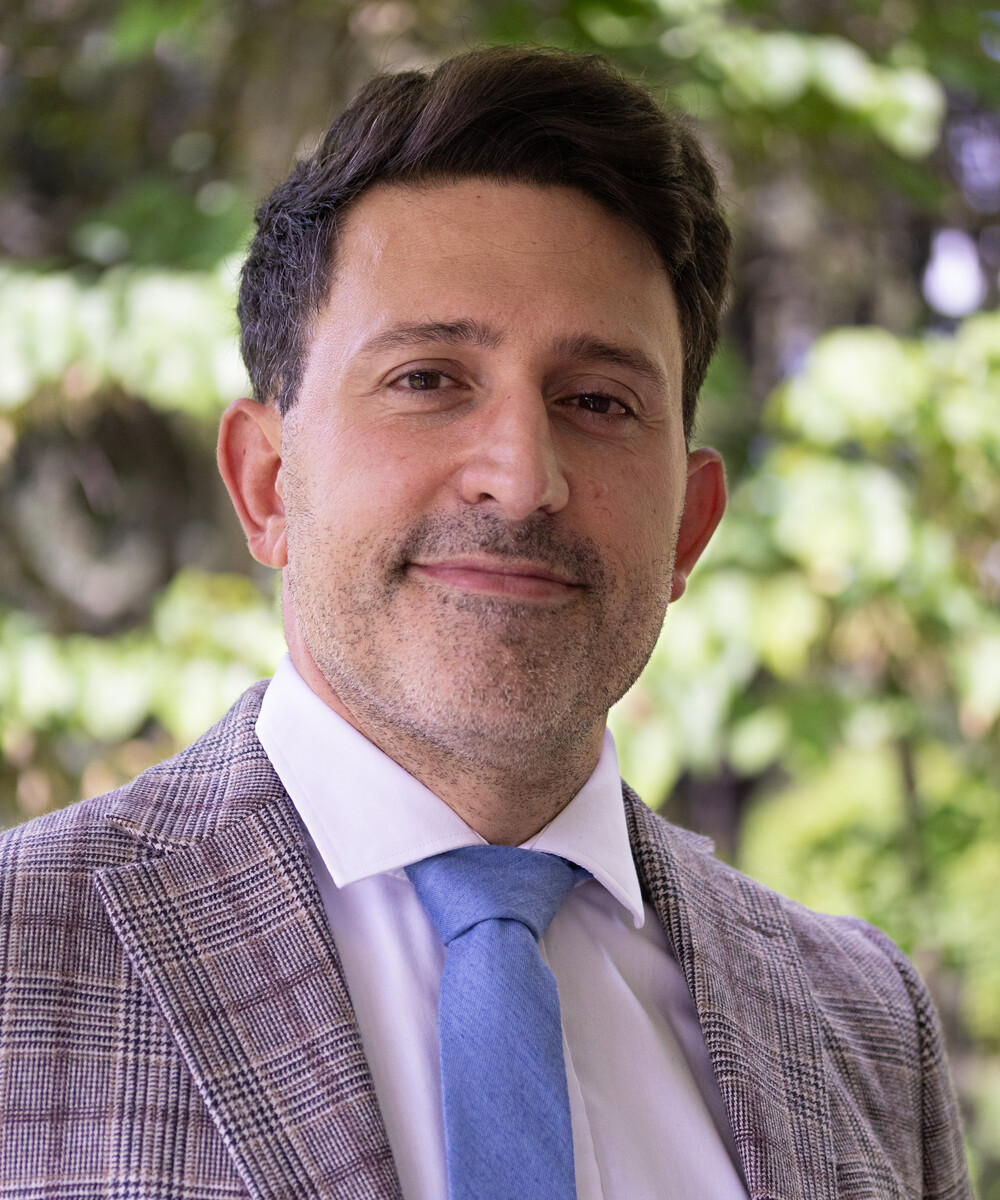
(From left) Doctoral student Hannah Yamagata, research assistant professor Kushol Gupta, and postdoctoral fellow Marshall Padilla holding 3D-printed models of nanoparticles.
(Image: Bella Ciervo)
2 min. read

Stephen Decina has been appointed the inaugural executive director of climate science, policy, and action, effective July 16. Provost John L. Jackson Jr. and Vice Provost for Climate Science, Policy, and Action Michael Mann made the announcement.
“Steve Decina has a distinguished record of accomplishment in both the science and policy spheres,” says Mann. “I am very excited about him joining our team here at Penn as we move forward with a bold agenda on climate and sustainability.”
Decina is a biogeochemist who has served for the past five years in the Bureau of Oceans and International Environmental and Scientific Affairs at the U.S. Department of State. In this role, he led collaborative environmental initiatives and negotiations across the G7 and G20 groups of global partners and the United Nations Environment Program, represented the United States on the Steering Committee of the United Nations International Resource Panel, helped to develop the Cities Forward Initiative that partners American and Latin American cities on sustainability initiatives, and led efforts to combat wildlife trafficking across the Western Hemisphere, the Middle East, North Africa, and the maritime sphere.
He was previously at the Environmental Protection Agency in the Office of Radiation and Indoor Air working to improve childhood asthma outcomes in vulnerable communities, air quality in tribal communities, clean cooking adoption in the developing world, and radon mitigation in schools, and he consulted for the United Nations Foundation Clean Cooking Alliance as an analyst and educator on household energy standards.
He received a Ph.D. in biology, with a specialization in biogeosciences, from Boston University, focusing on patterns of carbon, nitrogen, and phosphorus cycling in cities, followed by a postdoctoral fellowship at the University of California, Berkeley, where he analyzed urban air pollution through patterns and sources of emissions. Before his work as a scientist, Decina taught science for more than a decade in Newark, New Jersey, and New York City and co-founded a science camp for children in foster care with colleagues in Fairbanks, Alaska.
“The climate crisis is one of the defining issues of our time,” said Decina. “It is an honor to work in the Provost’s Office alongside Mike Mann to capitalize on Penn’s many strengths—world-class faculty and research, a passionate and brilliant student body, and a strong relationship with the great city of Philadelphia, to name just a few—to advance climate science and action. We are determined to play our part in giving future generations the opportunity to live peaceful and prosperous lives on a healthy, healing planet.”
The Office of the Vice Provost for Climate Science, Policy, and Action was founded in 2024 as a key component of the University’s strategic framework, In Principle and Practice, which foregrounds Penn’s responsibility to provide leadership and action on the great challenges of our time. The Office reflects Penn’s already considerable presence across energy, sustainability, and climate science, bringing together scientific research and education, local and global policies, what we do ourselves, and how we model, convene, learn from, and lead others, including other universities, other economic sectors, and other nations.

(From left) Doctoral student Hannah Yamagata, research assistant professor Kushol Gupta, and postdoctoral fellow Marshall Padilla holding 3D-printed models of nanoparticles.
(Image: Bella Ciervo)

Jin Liu, Penn’s newest economics faculty member, specializes in international trade.
nocred

nocred

nocred